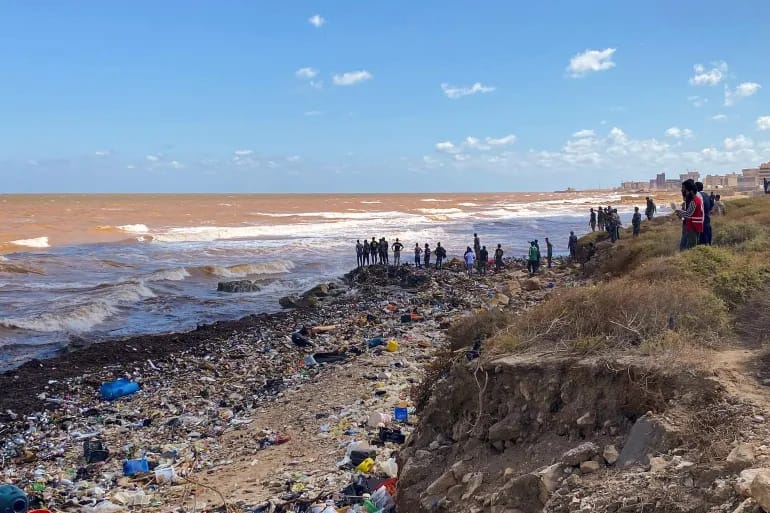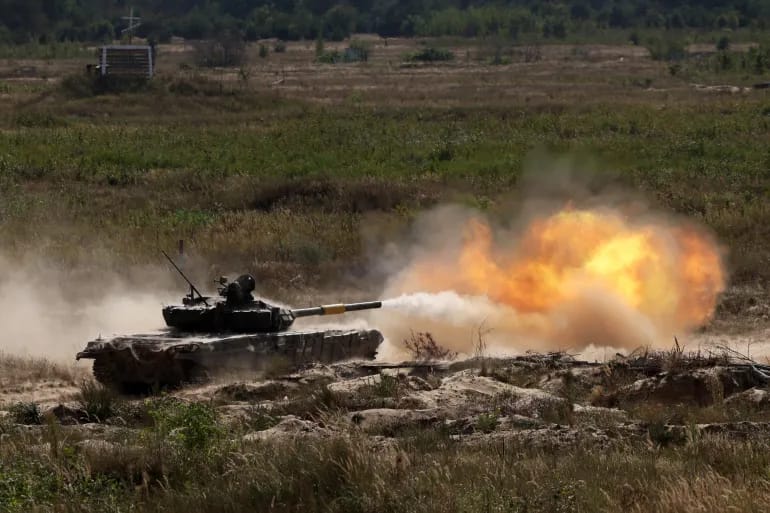Libya has been ravaged by flash floods, transforming the arid desert into a watery abyss, and leaving survivors grappling with the aftermath of one of the deadliest natural disasters in recent memory. The devastating floods, triggered by the fierce Storm Daniel, have claimed over 11,000 lives, leaving thousands stranded without food, water, or electricity. Muhammad al-Awkali, a 22-year-old survivor from al-Mukhaili, near Derna, described the harrowing experience as, “Have you ever seen a desert become the sea in the blink of an eye?”
Chaos Unleashed
The disaster struck with little warning. Following a powerful storm with violent winds, a false sense of calm settled over the region, lulling residents into a deceptive sense of security. “We went to sleep reassured. But then, at around 12:30 am, without any warning, water started gushing into the house,” recounted al-Awkali. Families, like his, were forced to seek refuge on their rooftops. It was here that the full extent of the crisis became apparent. Massive floods surged from both the north and west, taking residents by surprise. Many were unable to reach their rooftops, finding themselves trapped in their homes as the waters relentlessly rose.
For days, inhabitants of al-Mukhaili, along with thousands in other coastal areas, lived perched atop their homes and furniture as water levels reached astonishing heights. The loss of power further isolated them from the outside world, depriving them of food, drink, and information.
Grim Realities and Daunting Challenges
Derna, the coastal city hit hardest by the deluge, witnessed the catastrophic failure of dams, inundating the city with a torrent of water. Health Minister Othman Abduljalil reported that at least 10,000 people remain missing, intensifying the ongoing search and rescue efforts. While aid has begun to arrive from both the internationally-recognized government in Tripoli and international donors, the situation remains dire. Mayor Abdel-Moneim al-Ghaithi warns that the death toll in Derna alone could reach 20,000 due to the widespread devastation of neighborhoods.
In neighboring areas like al-Wardiya, located west of Bayda, access to assistance remains elusive. Collapsed roads and damaged infrastructure have made it nearly impossible for help to reach the village. Faisal al-Darsi, a resident of al-Wardiya, lamented, “To this day, we have not received any help from the government or from any official body. Instead, we’re being helped by the people in the neighboring areas.” The village now faces a grim reality of no electricity, fuel, water, or food, with nearly half of its houses washed away by the floods.
The storm has brought to light the vulnerabilities of an oil-rich nation already beset by conflict since the 2011 uprising against Muammar Gaddafi. Experts attribute the devastation to corruption, inadequate infrastructure maintenance, and years of political discord in a divided Libya.
Heroes Amidst the Crisis
Amid the despair, stories of heroism and community spirit emerge. Muhammad al-Awkali, along with friends, showed unwavering determination in assisting their neighbors and community members. Despite facing the torrents themselves, they risked their lives to help those who couldn’t reach safety. Al-Awkali recalled the desperate situation of one family, forced to spend the night atop their wardrobe.
However, the tragedy has also created an agonizing uncertainty for survivors, as entire families remain missing. Faisal al-Darsi spoke of the heart-wrenching ordeal, saying, “We do not know who died and who is still alive.” Entire families in his village have been lost, with some buried under the mud and others swept away by the torrents. The situation in hospitals, like the one in Susa, remains dire, with mounting bodies and overwhelmed medical staff struggling to cope.
As eastern Libya tries to recover from this unprecedented disaster, the world watches, and aid efforts intensify to provide much-needed relief to the survivors. The images of a desert turning into a sea will forever haunt the minds of those who endured this calamity, but it is the resilience and courage of the survivors that will ultimately define their recovery.
















